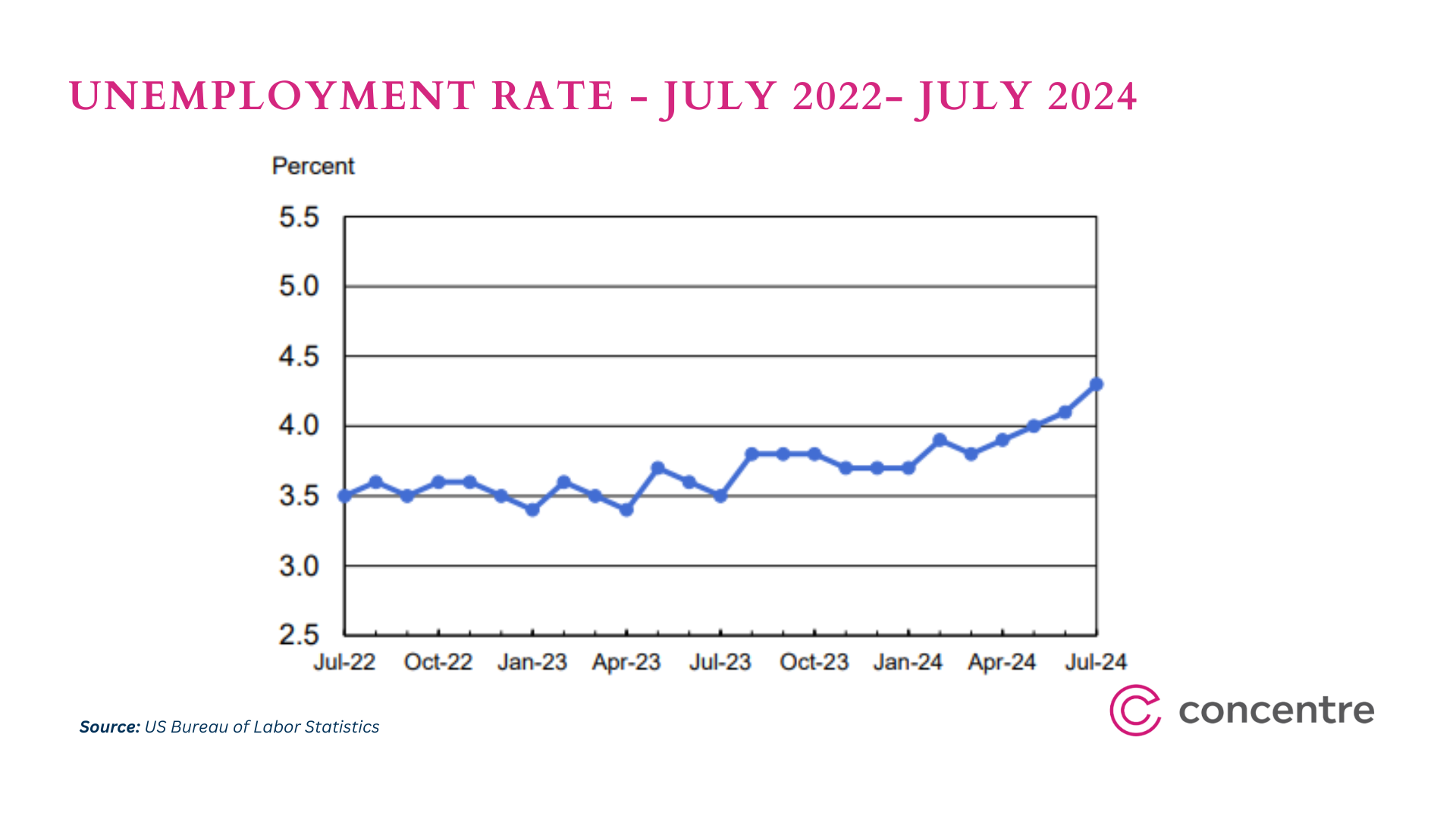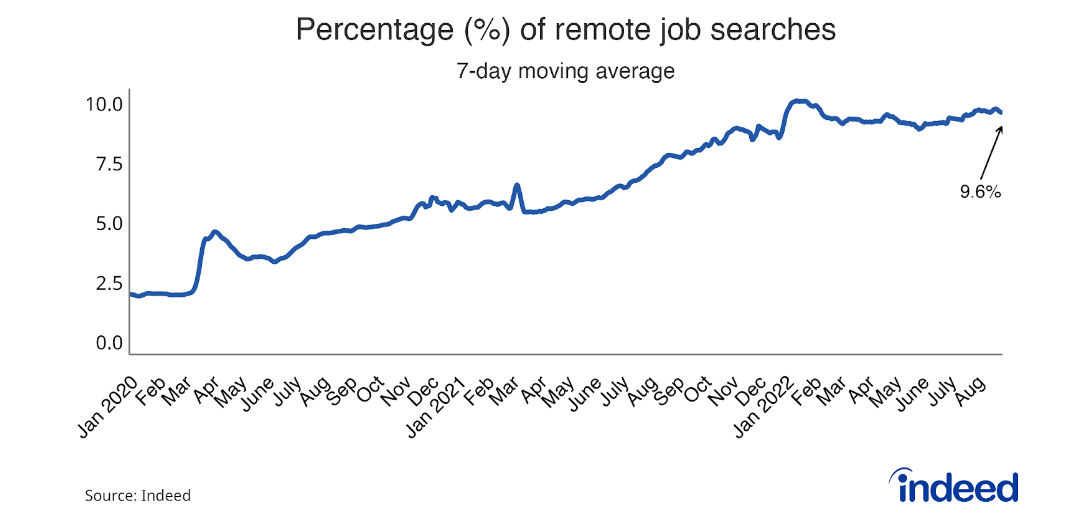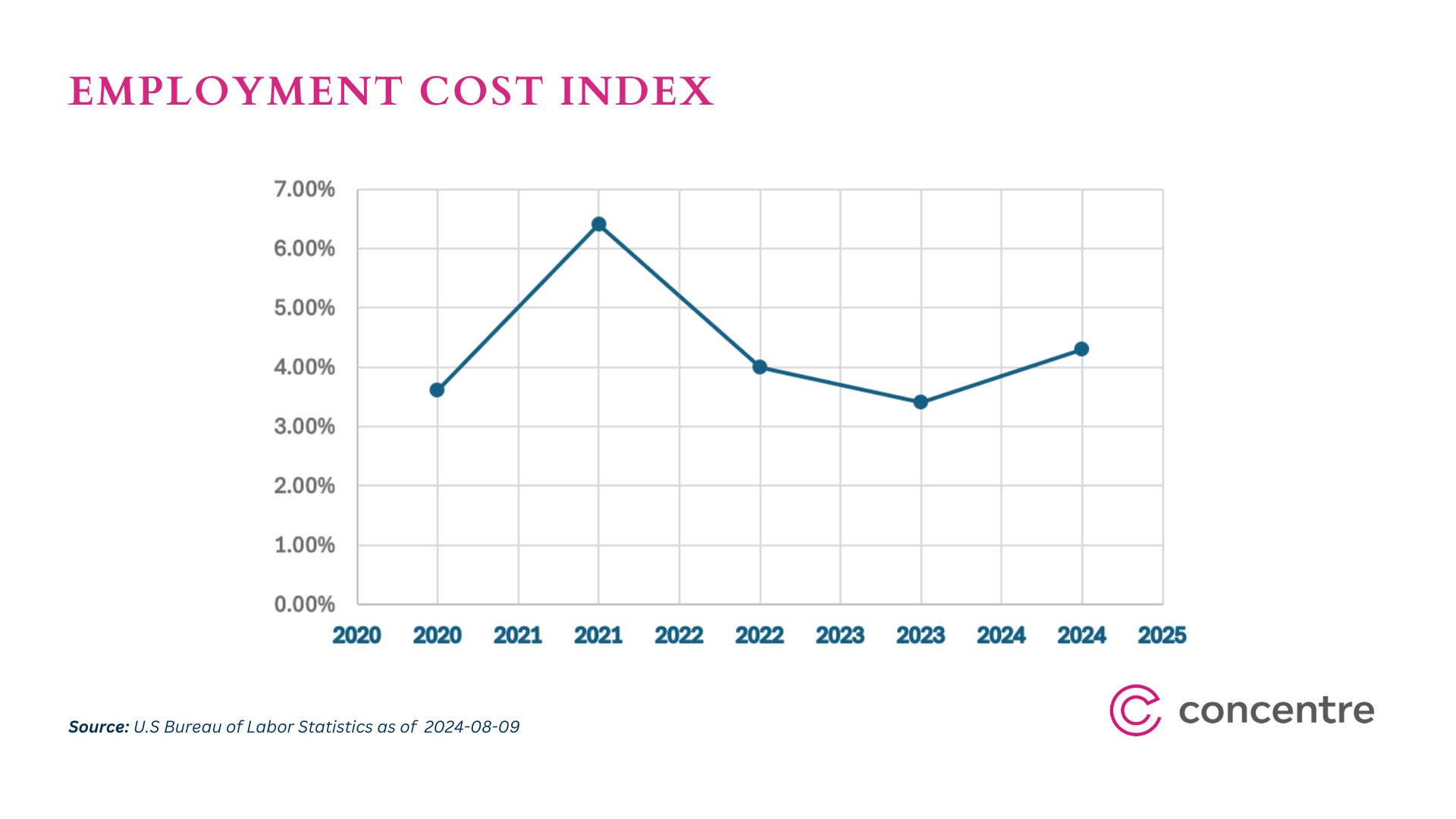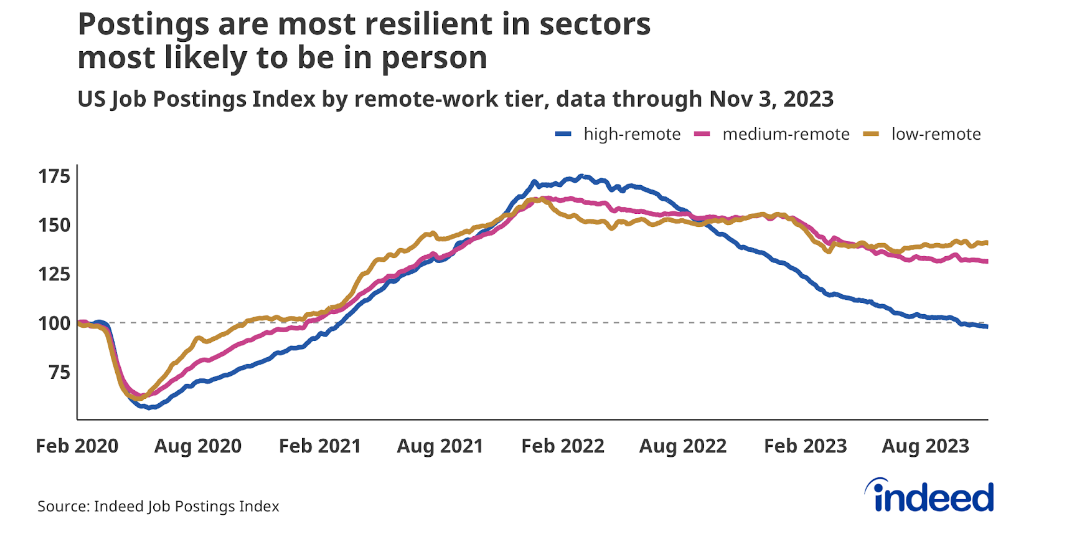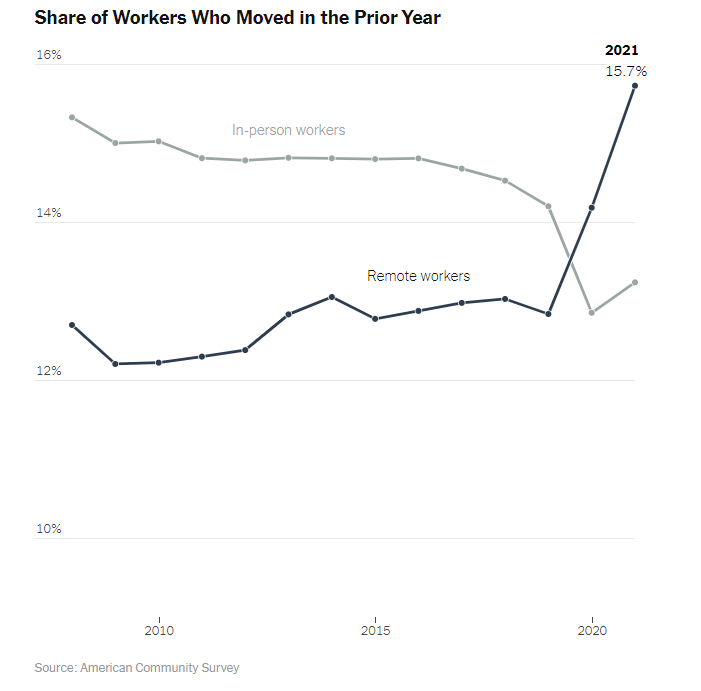In today’s rapidly accelerating business landscape, mid-market companies face a unique set of challenges. These organizations are under constant pressure to grow, innovate, and increase profitability, all while navigating a complex and often unpredictable market. One of the most pressing issues many of these companies face is the ongoing talent crunch, which has been exacerbated by recent global events and shifting workforce dynamics .
Over the last two years in the US, unemployment has been between 3.5% and 4.5%. This is lower than what is generally considered “Full Employment” – an unemployment rate of 5.0%.
In addition, there has been an increasing desire for knowledge workers to shift to remote jobs. From 2020 to 2024, the rate of searches for remote positions increased between 3x and 4x.
The Talent Shortage: A Growing Concern
The struggle to find and retain skilled professionals has become increasingly difficult for mid-market companies. This challenge is particularly acute in fields such as accounting, where the number of graduates has been steadily declining over the past several years. Simultaneously, many experienced CPAs are retiring, further shrinking the available talent pool.
The situation isn’t limited to accounting. Technical fields like software development, data science, and engineering are also experiencing severe talent shortages. Companies report candidates not showing up for interviews, and those who do often have multiple offers to choose from, driving up compensation expectations, and extending the time to get key people onboard.
The Cost Conundrum
Private equity investors continually push for cost reduction and improved profitability. However, the talent shortage has created an environment where domestic labor costs, especially for skilled roles, are skyrocketing. This puts significant strain on company margins and can impede growth strategies.
Mid-market companies find themselves in a challenging position: they need to attract top talent to drive innovation and growth, but they often lack the resources of larger enterprises to compete in terms of compensation and benefits.
Scalability: A Critical Challenge
Another pain point for mid-market companies is the need for scalability. Unlike their larger counterparts, these organizations often lack the resources to quickly scale up operations when needed or to address peaks and valleys in demand. This limitation can hinder their ability to respond to market opportunities or customer demands, potentially losing ground to more agile competitors.
The Global Competitiveness Factor
In an increasingly interconnected world, mid-market companies are no longer just competing locally or nationally – they’re up against global players. Many competitors, both domestic and international, are already leveraging global talent through offshoring, gaining advantages in terms of cost, scalability, and access to diverse skill sets.
The combination of AI and automation tools (to eliminate and reduce work) and access to global talent, is at a point where more companies are going to be in a position to profitably lower prices and pick up market share, while causing their unprepared competitors’ significant pain.
The Remote Work Revolution
The COVID-19 pandemic has accelerated the adoption of remote work, making it both more desired by employees and more acceptable to employers. This shift has opened up new possibilities for building distributed teams, but it has also intensified competition for talent as geographic boundaries become less relevant.
Navigating the Complexities
While offshoring presents potential solutions to many of these challenges, it’s not without its own complexities. Companies must navigate differences in time zones, cultures, and languages. Ensuring consistency in quality, protecting intellectual property, and effectively integrating remote team members are all significant challenges that need to be addressed.
Moreover, stakeholder concerns cannot be ignored. Employees may worry about job security or the challenges of managing offshore teams. Customers might have concerns about service quality and data security. Effective change management and clear communication are critical to addressing these issues.
Strategic Considerations
So, for these companies, offshoring isn’t just a tactical decision – it’s a strategic one. It requires careful consideration of how global talent fits into the company’s long-term growth plans. Is it a short-term cost-cutting measure, or a long-term investment in building a global team? How will the balance between domestic and offshore resources evolve as the business grows?
Many companies have taken advantage of the benefits of strategic offshoring.
At Concentre, we have worked with clients to provide a thoughtful approach to building the right team, with the right skills in the right location(s). This has included:
- Implementing a workforce forecasting solution for a technology development company to ensure that that had the right number of project managers, analysts, developers and QAs for the projects they had sold.
- Building the right team utilization pyramid for an industry focused consulting company which unlocked time for senior consultants to focus on business development activities and the overall team to increase profitability without adding staff.
- Building large and small dedicated offshore teams, focused in the right countries where the needed skills were available, cost and cost changes were advantageous and the new team members could be a part of the broader team.
Conclusion
The challenges facing mid-market, private equity-backed companies are significant, but not insurmountable. Offshoring, when approached strategically, can offer solutions to many of these pain points. It can provide access to a broader talent pool, help manage costs, improve scalability, and enhance global competitiveness.
However, it’s crucial to approach offshoring with eyes wide open. The complexities and potential pitfalls must be carefully considered and managed. With thoughtful planning, clear communication, and strategic implementation, offshoring can be a powerful tool in addressing the talent crunch and positioning mid-market companies to scale in an increasingly competitive global landscape.


